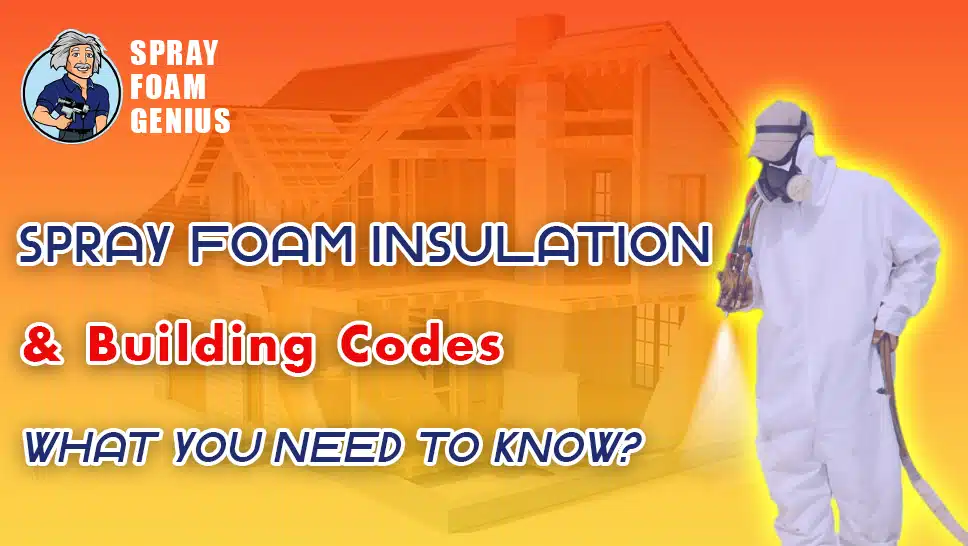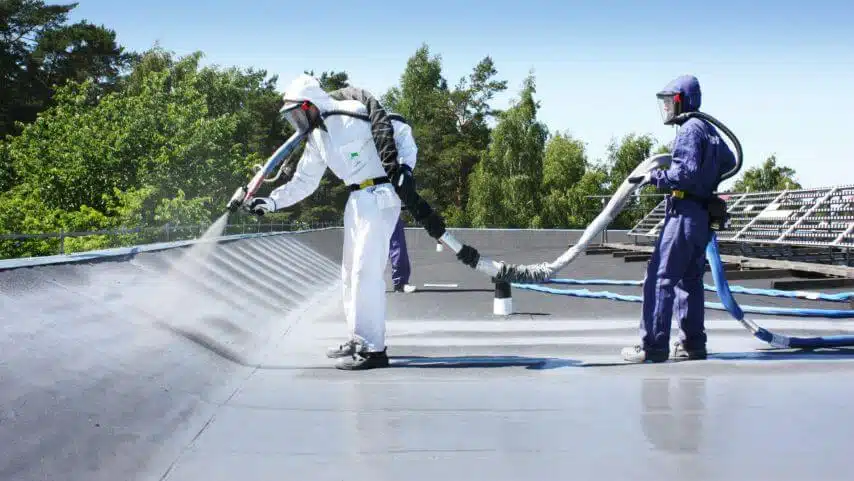
For spray foam insulation contractors in the USA and Canada, navigating building codes is not just a matter of compliance—it’s a cornerstone of your business’s success. Building codes ensure that construction practices meet safety, health, and efficiency standards, directly impacting the quality and legality of your projects. This comprehensive guide will delve into the importance of building codes for spray foam insulation, key codes and standards, best practices for compliance, and how Spray Foam Genius Marketing can support your business.
Why Building Codes Matter for Spray Foam Insulation Contractors
Building codes are sets of regulations that govern construction practices to ensure safety and efficiency. For spray foam insulation contractors, these codes dictate how insulation should be installed, what materials are acceptable, and the necessary safety measures. Adhering to these codes is crucial for several reasons:
1. Ensuring Safety
Building codes are designed to protect occupants by setting standards for safety. For spray foam insulation, this includes preventing fire hazards, ensuring structural integrity, and maintaining good indoor air quality. Spray foam insulation must comply with these codes to prevent issues like fire risk, which could compromise both safety and structural integrity.
2. Avoiding Legal and Financial Repercussions
Failure to adhere to building codes can result in legal issues, fines, and the need for costly rework. Non-compliance can lead to project delays, legal disputes, and a damaged reputation. Ensuring compliance protects your business from these risks, helping you avoid financial and legal trouble.
3. Building Credibility and Trust
Demonstrating compliance with building codes showcases your commitment to safety and quality. This not only builds trust with clients but also enhances your reputation in the industry. Clients are more likely to choose contractors who prioritize code compliance and adhere to high standards.
4. Improving Project Efficiency
Compliance with building codes leads to smoother inspections and fewer project delays. It helps you complete projects on time and within budget, contributing to overall business efficiency and success. This efficiency is crucial for maintaining profitability and client satisfaction.
Key Building Codes and Standards for Spray Foam Insulation
Understanding the building codes and standards relevant to spray foam insulation is essential for ensuring compliance. Here are the most important codes and standards to be aware of:
1. International Codes
- International Residential Code (IRC) and International Building Code (IBC): These codes are widely adopted in the USA and provide comprehensive guidelines for building practices, including insulation requirements. They cover material specifications, installation techniques, and safety measures.
- National Building Code of Canada (NBC): This code governs construction practices in Canada, including insulation. It outlines requirements similar to the IRC and IBC but tailored to Canadian building practices and climate conditions.
2. Fire Safety Standards
- NFPA 286 – Standard for Fire Tests: This standard ensures that spray foam insulation does not contribute to fire hazards. It requires that insulation materials be tested for their fire resistance and covered with a thermal barrier to protect against fire.
3. Material Performance Standards
- ASTM Standards: The American Society for Testing and Materials sets performance standards for insulation materials. Spray foam insulation must meet these standards for thermal resistance, moisture permeability, and structural durability. Key standards include ASTM C1029 for spray polyurethane foam and ASTM E84 for fire performance.
Key Compliance Areas for Spray Foam Insulation
1. Material Specifications
Spray foam insulation comes in two main types:
- Open-Cell Foam: This type is less dense and flexible, allowing vapor to pass through. It is commonly used for interior applications where breathability is desired.
- Closed-Cell Foam: This type is denser and more rigid, offering better moisture resistance and higher insulation values. It is typically used for exterior applications or areas requiring additional strength.
Code Requirement: Both open-cell and closed-cell foams must meet ASTM C1029 standards and undergo fire testing according to NFPA 286. Ensure that the foam you use is compliant with these standards to guarantee its performance and safety.
2. Fire Safety and Thermal Barriers
Spray foam insulation can pose fire risks if not properly protected. Building codes require a thermal barrier to separate the foam from the interior of a building.
Code Requirement: IRC Section R316 and NBC stipulate that foam plastic insulation must be covered with a thermal barrier with a 15-minute fire resistance rating. This requirement helps prevent the spread of fire and ensures the safety of occupants.
3. Ventilation and Indoor Air Quality
Proper ventilation is crucial during and after the application of spray foam insulation. The chemicals used in spray foam can off-gas, which may affect indoor air quality if not properly managed.
Code Requirement: The IRC and IBC provide guidelines for ventilation to ensure that indoor air quality is maintained. Adequate ventilation during the curing period of spray foam insulation is essential to prevent the buildup of volatile organic compounds (VOCs) and ensure a safe environment.
Navigating Regional and Local Building Codes
Building codes can vary significantly between states, provinces, and municipalities. Understanding these regional variations is crucial for ensuring compliance across different locations.
1. State and Provincial Codes
In the USA, building codes can vary by state. For example, California has stricter fire safety regulations due to its wildfire risks, while states with colder climates may have more stringent thermal insulation requirements.
In Canada, provinces like Ontario and British Columbia have additional requirements that supplement the NBC. Quebec, with its unique climate conditions, has specific guidelines for insulation that must be followed.
2. Local Regulations
Municipalities may have building codes that exceed state or provincial requirements. It’s important to check with local building authorities to ensure that you meet all local regulations.
3. Staying Updated on Code Changes
Building codes are regularly updated to reflect new safety standards and technological advancements. Staying informed about these updates is essential for maintaining compliance.
Best Practices:
- Join Professional Organizations: Organizations like the Spray Polyurethane Foam Alliance (SPFA) offer resources and updates on building codes and industry best practices.
- Subscribe to Industry Publications: Keep up with industry newsletters and publications to stay informed about code changes and trends.
- Attend Training and Seminars: Participate in educational events to learn about new code requirements and how they impact your work.
Best Practices for Ensuring Compliance
1. Conduct Pre-Installation Assessments
Before starting any project, perform a thorough assessment of the building’s design, existing insulation, and intended use. This assessment helps determine the most suitable type of spray foam insulation and ensures that all relevant codes are met.
2. Obtain Certifications and Training
Certifications from industry organizations, such as the SPFA, demonstrate your expertise in spray foam insulation and code compliance. Regular training helps keep your knowledge current and ensures that your team is up-to-date with the latest practices and requirements.
3. Use Code-Compliant Materials
Ensure that all spray foam products you use meet building code requirements. Keep detailed records of product data sheets and compliance certificates to provide evidence of adherence if needed.
4. Collaborate with Building Inspectors
Develop a good working relationship with local building inspectors. Engage with them early in the project to review your plans and ensure they align with local codes. Regular communication helps identify and address potential issues before they become major problems.
Benefits of Adhering to Building Codes

1. Enhanced Reputation and Trust
Compliance with building codes demonstrates professionalism and a commitment to quality, which enhances your reputation and builds trust with clients. A strong reputation for adhering to codes can lead to more referrals and repeat business.
2. Reduced Liability and Risk
By following building codes, you minimize the risk of legal issues and liability claims. Compliance protects your business from potential lawsuits related to safety hazards or code violations.
3. Improved Project Efficiency
Adhering to building codes results in smoother inspections and fewer delays. This helps you complete projects on time and within budget, improving overall efficiency and client satisfaction.
4. Access to Financial Incentives
Meeting code requirements can qualify your projects for financial incentives and rebates related to energy efficiency. This can add value to your services and help clients save on costs.
5. Support for Environmental Sustainability
Compliance with codes that emphasize energy efficiency aligns your business with sustainability goals. Using materials and practices that meet these standards helps reduce environmental impact and conserve resources.
How Spray Foam Genius Marketing Can Support Your Compliance and Growth
Spray Foam Genius Marketing specializes in providing targeted marketing services for spray foam insulation contractors. Our expertise can help you attract clients, emphasize your commitment to compliance, and grow your business.
Our Services Include:
- Professional SEO: We optimize your website and content to improve search engine rankings, helping you attract more qualified leads.
- Google Business Profile Optimization: We enhance your local search presence to ensure clients find you easily.
- Website Development: We create user-friendly, compliant websites that showcase your expertise and adherence to building codes.
- Lead Generation: Our strategies connect you with clients interested in high-quality, compliant insulation services.
- Reputation Management: We help build and maintain a positive online reputation, highlighting your commitment to safety and quality.
Contact Us Today
Ready to elevate your spray foam insulation business and ensure code compliance? Contact Spray Foam Genius Marketing for expert support tailored to your needs.
- Call us at: 877-840-FOAM for USA and 844-741-FOAM for Canada
- Visit our website: https://sprayfoamgeniusmarketing.com/
- Email us at: [email protected]
Let us help you navigate building codes and grow your business successfully.
- How to Use Pinterest to Market Your Spray Foam Insulation Services - December 27, 2023
- How to Use LinkedIn to Grow Your Spray Foam Insulation Business - December 23, 2023
- How to Use Instagram to Showcase Your Spray Foam Insulation Projects - December 16, 2023

